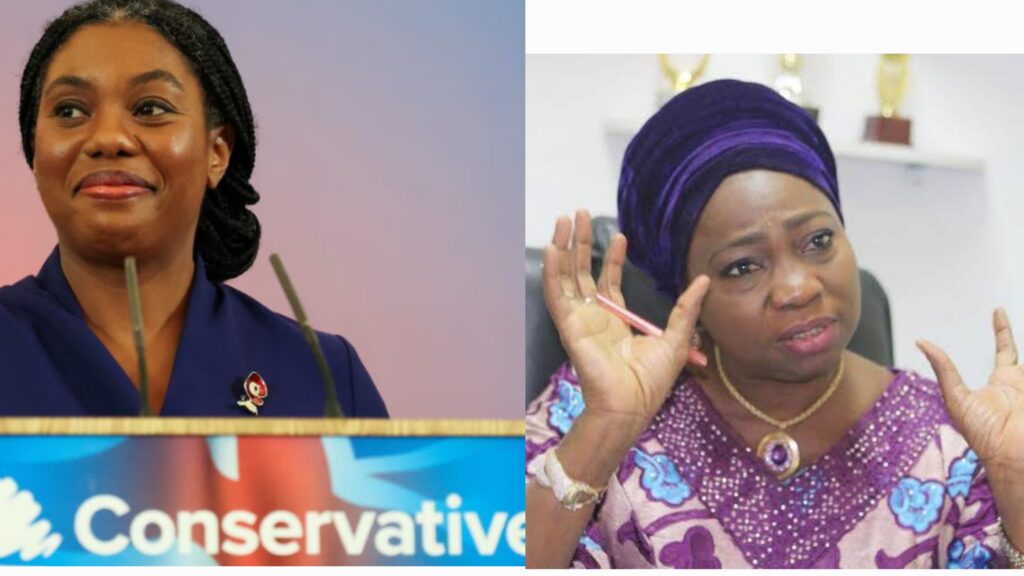
Lagos – Nigeria will not force the newly elected leader of UK’s Conservative Party, Kemi Badenoch, to identify with her Nigerian roots, the chairperson of the Nigerians in Diaspora Commission (NiDCOM), Abike Dabiri-Erewa said Wednesday.
Dabiri-Erewa, whose office oversees activities of Nigerians in diaspora, revealed on a local TV programme that her office reached out to Badenoch a few times and got no response.
“It depends on if she identifies the Nigerianess in her. We have reached out to her once or twice without any response, so we don’t force people to accept to be Nigerian,” Dabiri-Erewa said on Channels Television’s The Morning Brief programme on Wednesday when asked if Nigerian government has identified with Badenoch.
The NiDCOM chairwoman added: “If you appreciate the Nigerianess in you and you want to work with us, we are open to everybody, but we cannot force you to appreciate the Nigerianess in you. You remember the Miss Universe Nigeria in South Africa.
“Until she got into a little problem with South Africa she identified with Nigeria, and she identified with Nigeria, came to Nigeria and we hosted her. As long as that blood is in you, you are a Nigerian.
“So, it depends on Kemi to decide whether appreciates the Nigerianess in her, whether she wants to work with Nigeria, but we cannot force anybody.”
Kemi Badenoch became the Conservatives’ new leader and the first Black woman to a head a major British political party on Saturday, after winning a leadership contest on a promise to return the party to its founding principles.
Badenoch, 44, replaces former Prime Minister Rishi Sunak and has pledged to lead the party through a period of renewal after its resounding defeat at Britain’s July election, saying it had veered towards the political centre by “governing from the left”.
She came out on top in the two-horse race with former immigration minister Robert Jenrick, winning 57 percent of the votes of party members.
Badenoch, 44, was born in London in 1980, but spent her childhood living in Lagos, Nigeria, and in the United States, where her mother lectured.
She returned to the UK at the age of 16 to live with a friend of her mother’s due to the deteriorating political and economic situation in Nigeria, which had affected her family.
